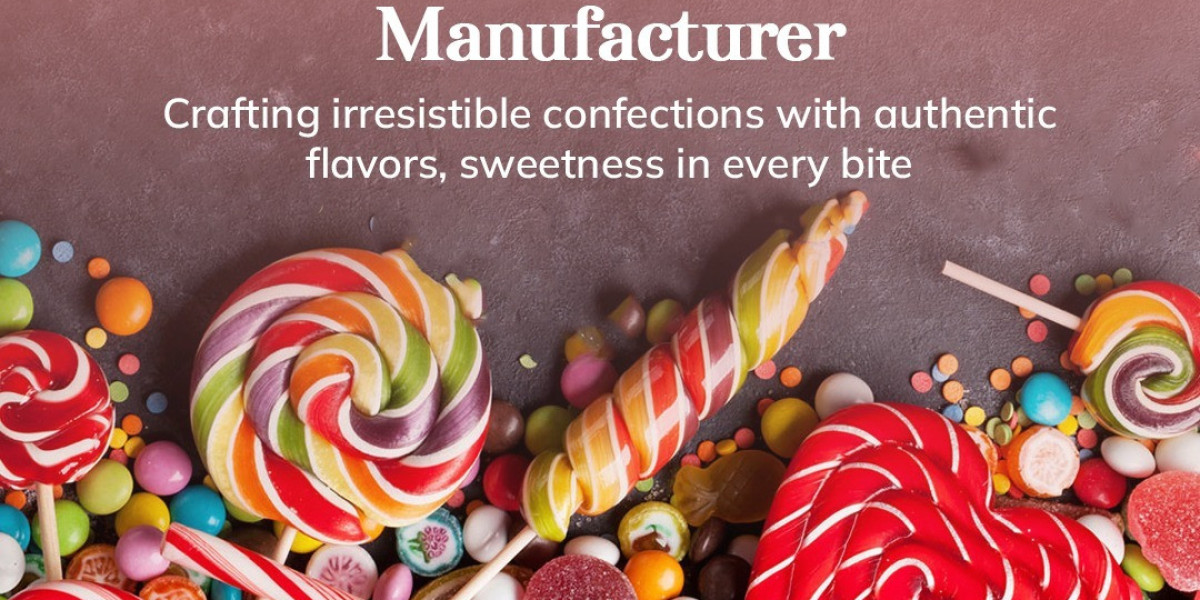The confectionery world is as wide and bright as one's imagination. From luscious chocolates and tangy gummies to hard candies and lollipops, every sweet variety gets imprinted into memory with its flavour. Yet, for every splendid candy experience, the unsung hero lies the artisan-confectionery flavour manufacturer.
An artisan-confectionery flavour manufacturer is key in the food industry in putting together tastes that define candies, sweets, gums, and other confectionery products.
What Does a Confectionery Flavour Manufacturer Do?
A confectionery flavour manufacturer is a specialized confection taste-maker. The duties include:
R&D (Research & Development): Analysing market trends, consumer preferences, and technical feasibility to develop new and innovative flavours.
Formulation: To develop flavour profiles in proper balance and appeal, using natural or synthetic based compounds.
Customisation: To tailor some flavours to suit client specifications, if need be, to cater for certain dietary restrictions, or perhaps regional preferences.
Compliance: Ensuring products comply with international food safety and regulatory standards such as FSSAI, FDA, or EFSA.
Testing & Quality Assurance: Ensure stringent testing for the sake of integrity, control, stability, and performance of shelf life.
Types of Confectionery Flavours
The confectionery segment is highly diversified. A flavour manufacturer normally produces:
1. Fruit Flavours
Most common and widely versatile ones are:
Strawberry
Mango
Orange
Apple
Mixed berries
Fruit flavours are sweet, tart, juicy, and used extensively in candies, jellies, and gummies.
2. Flavours of Mint and Cooling
Mint flavours of spearmint and peppermint, etc., with cooling and crisp effects, are common in chewing gums and refreshing candies.
3. Dairy Flavours
And buttery shades for toffee, fudge, and caramel flavours.A few examples are:
Butterscotch
Vanilla cream
Caramel
4. Nut and Dessert Flavours
Flavours such as hazelnut, almonds, chocolate fudge, and coffee are gaining popularity in gourmet and upscale candy.
5. Ethnic and Exotic Flavours
Inspired by local cuisines, these include:
Rose
Saffron
Paan (Betel Leaf)
Tamarind
Lychee
6. Fantasy and Custom Blends
Unusual blends like bubble gum, cotton candy, rainbow punch, or cola-flavoured sweets are created to satisfy customer demand and the trends discerned from market analysis.
The very essence of successful confectionery products hinges upon the flavour experience.
Hence the need for getting a good manufacturer:
1. Consistency and Quality
Great manufacturers always maintain very stringent quality control; hence, the end-users always get flavour blends that taste equally good in every batch.
2. Innovation and Variety
Esteemed manufacturers are forever innovating to come up with new and exciting flavours that give brands a competitive edge.
3. Customization
They allow changes within the formulation-intensity of a flavour; with the clients' consent, they can even come up with totally bespoke blends.
4. Regulatory Compliance
Reputed flavour houses comply with official food laws of the land and of the rest of the world, which is very important when seeking product approvals and exports.
5. Technical Support
Good manufacturers assist clients with application testing, some recipe suggestions, and some troubleshooting.
Flavour Development Procedure for Confectionery
Flavour development is equal parts science and art. Among many, the following is a typical flow followed by confectionery flavour manufacturer:
Step 1: Briefing
The client offers his vision for the product, target market, taste notes, and any restrictions like vegan, sugar-free, halal, etc.
Step 2: Flavour Design
Flavourists (experts in flavour creation) initiate the blend formulation using aroma compounds, essential oils, and extracts.
Step 3: Application Testing
In the candy or confectionery base (e.g., gelatin for gummies, sugar syrup for hard candies) the flavour is tested for its actual performance.
Step 4: Feedback and Changes
Adjustments will be made to the flavour based on sensory analysis and further feedback until the flavour profile matches the one desired.
Step 5: Packaging and Final Batch Production
After all, a flavour will finally be huge amounts of packaging under sterile conditions and will be sent to the client.
Trends in Confectionery Flavours
The confectionery landscape is continuously changing, with flavour trends coming and going. That leaves the present trends below determining the market:
1. Natural and Clean Label Flavours
Consumers prefer the natural flavours from fruits, herbs, and botanicals to those derived by artificial means. In response, manufacturers are focusing on clean label products.
2. Health-Conscious Sweets
Sugarless, low calorie, or "functional" sweets with added vitamins or probiotics are finding their way into consumer preferences. Special formulations are necessary for such flavours in order to either mask undesirable tastes or boost pleasant ones.
3. Global Palate
Flavours inspired by foreign gastronomy are making ground into mainstream, such as Thai mango chili, Japanese matcha, or Middle Eastern rose-pistachio.
4. Nostalgia and Comfort
Flavours that remind one of their younger years — think tutti-frutti, bubble gum, or caramel popcorn — are in high demand.
5. Seasonal and Limited Editions
Flavorful seasonal or holiday-themed launches draw lots of attention and, consequently, sales, for example, pumpkin spice (Halloween), cinnamon (Christmas), and tropical blends (summer).
How to Choose a Good Flavour Manufacturer
Choosing your partner could be the difference between making or breaking your product. Here are some considerations:
Experience & Reputation: Manufacturers having a dependable background in the confectionery domain will be preferred.
Certification: Look for manufacturers certified by ISO, HACCP, GMP, or another such authority.
R&D Capabilities: A strong R&D laboratory for trendy or customized flavour formulation is a potential plus.
Global Reach: If you export, it's good to have a flavour manufacturer who has an experience of international compliance.
Sample Support: Pick those manufacturers who are ready to provide free or cheap samples for evaluation.
Client Portfolio: Being trusted by leading brands or having a widespread customer base indicates the performance and trustworthiness of the flavour house.
Applications of Confectionery Flavours
The common taste features supplied to manufacturers are used in various confectionery goods, including:
Hard Candies: Fruit, mint, and citrus flavours
Gummies and Jellies: Berries, tropical blends, and sour profiles
Toffees and Caramels: Creamy vanilla, butter, or nut flavours
Chewing Gums: Mint, bubble gum, cinnamon, and cooling agents
Lollipops: Bright fruity flavours with bold taste
Chocolate-Coated Sweets: Hazelnut, mocha, and caramel
Paan Masala or Digestive Candies: Betel leaf, cardamom, tamarind
Future of Confectionery Flavour Manufacturing
The future is about personalization, innovation, and health. There has been a trend among the flavour houses to research and implement AI-assisted flavour profiling, plant-based and vegan flavours, and mood-enhancing formulations.
The other thing is that, as global palates develop, cross-cultural blends and multi-sensory experiences are going to go mainstream. Picking up the pulse will keep them on the leading edge in making confectionery in the future.
In Closing
This means that a confectionery flavour manufacturer is much more than a mere supplier — they are creative partners who imbue life into your product. From real traditional flavours to exotic fusion creations, they give your sweets that "X" factor that enables them to capture the hearts of people forever.
If you are in the confectionery business and would love to wow your customers, your choice in a flavour manufacturer will be a defining factor that sets you apart for good. Choose wisely and let your flavours speak for you.








